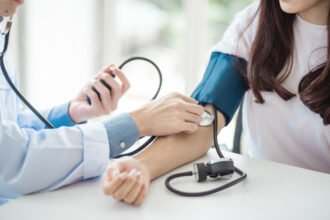 A new study presented at the Canadian Cardiovascular Congress finds that paramedics may be able to do more tha
A new study presented at the Canadian Cardiovascular Congress finds that paramedics may be able to do more tha
 A new study presented at the Canadian Cardiovascular Congress finds that paramedics may be able to do more than just respond to emergencies — they may be able to prevent them. By visiting seniors on a routine basis, paramedics reduced the number of emergency phone calls by nearly a third.
A new study presented at the Canadian Cardiovascular Congress finds that paramedics may be able to do more than just respond to emergencies — they may be able to prevent them. By visiting seniors on a routine basis, paramedics reduced the number of emergency phone calls by nearly a third.
“As members of the health team on the front line, paramedics can play a valuable role in reducing the risk and improving the health of seniors,” Dr. Gina Agarwal, associate professor in the department of family medicine at McMaster University, stated in a press release.
It’s All About Communication
The study centered on a subsidized housing complex in the city of Hamilton, Ontario, which houses nearly 280 residents. Most inhabitants are low-income seniors, who are at an increased risk not only for cardiovascular disease, but also for diabetes and falls. Because the building was frequently placing calls to the local EMS, paramedics couldn’t help but to wonder what might done to help out this special population?
With the help of researchers at McMaster University, the paramedics designed a special program where they dropped by the housing complex on a weekly basis to review healthy lifestyles, measure blood pressure, assess diabetes risk, and discuss the risk of falls. Soon enough, these special sessions became ‘must-see’ events, with nearly a quarter of all residents over the age of 65 attending each one.
“The paramedics discussed one or two risk factors, such as smoking, lack of exercise, or diet at each visit, tried to link residents to community resources and give advice, and then followed up to see how residents were managing,” Agarwal stated in a press release.
In very short order, the sessions began to provide real data for the researchers to analyze. For instance, the paramedics discovered that more than 60 percent of the participants had a too-high body mass index, half had high blood pressure, 40 percent reported a low level of physical activity, one-third smoked, one-third had a high salt intake, and one-third had a high fat intake.
In response to these findings, the paramedics began to make direct referrals to the in-house wellness exercise program, to the diabetes foot care and education program, as well as to individual family doctors of ailing residents. For those with high blood pressure, the paramedics found that 80 percent were already on some form of medication so the paramedics simply conveyed this information to the family doctors — only after the seniors granted their permission — so that prescriptions could be properly adjusted. Paramedics also helped the seniors be in touch with nutritionists and food advisors as well as quit smoking programs.
“With their regular presence thanks to the weekly schedule, the paramedics seem approachable,” Agarwal noted in a press release. “The number of new attendees keeps rising, with word of mouth. The high number of multiple visits also indicates a hunger for this type of health information when it’s so readily available.”
In fact, since initiation, the program shows not only a rising number of participants but also a reduction in EMS calls. Preliminary data suggests paramedics have recieved a whopping one-third less calls than in the past.
“Communication is the key here. Community-based health programs like this can be a very effective way to promote good health and prevent chronic conditions,” Heart and Stroke Foundation spokesperson Dr. Beth Abramson stated in a press release. “We can all learn from this experience.”








